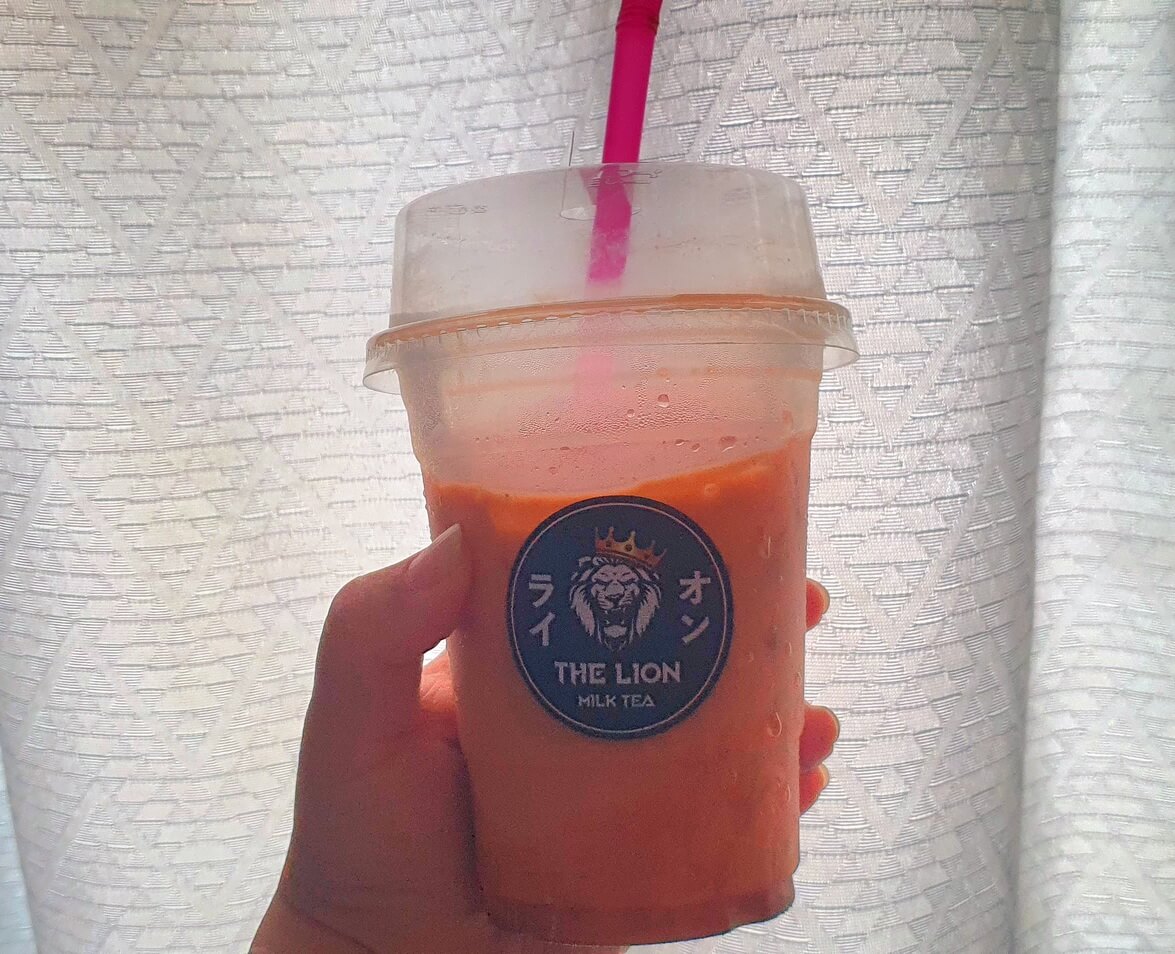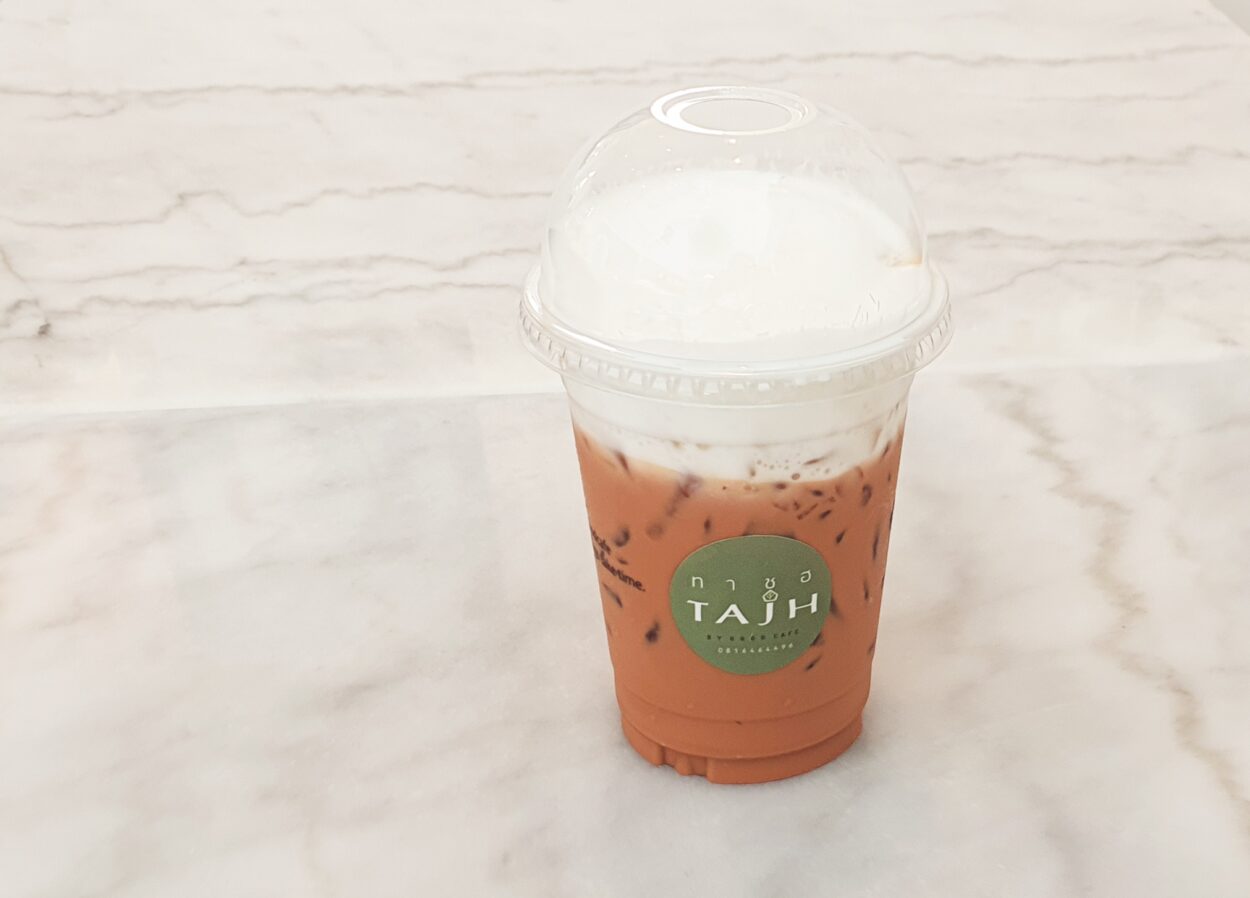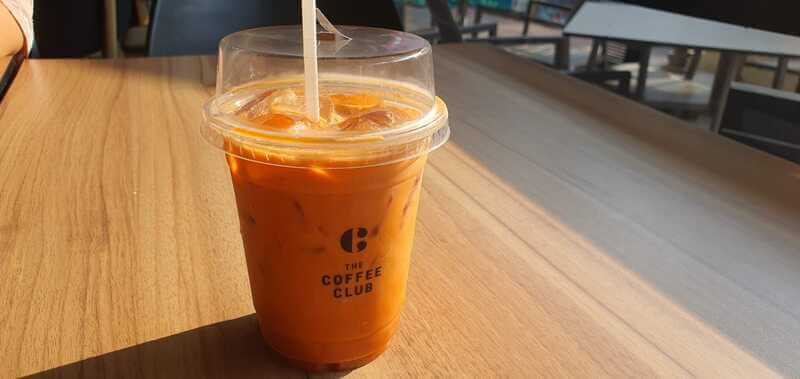Thai tea stands out among the variety of delectable beverages as a well-liked and refreshing option. Thailand is recognized for its lively food and distinct flavors.
This distinctive beverage has firmly established itself as a staple of Thai culinary tradition thanks to its eye-catching orange hue and rich, creamy flavor.
Thai tea is culturally significant in Thailand and is frequently connected with food stands where popular Thai meals are served. It’s widely available in cafes and restaurants as well as neighborhood markets and food carts that serve both locals and visitors.
Particularly given Thailand’s tropical climate, Thai tea is frequently consumed as a cooling and thirst-quenching beverage. Its cooling effect makes it a popular option to beat the heat, especially when served over ice.
In this post, we’ll learn about the significance of Thai tea, how long it’s been a staple beverage and the different types of tea that Thai people like.
So, let’s start!

What is Thai Tea?
Thai tea, or “cha-yen,” as it is sometimes known in Thai, is a mixture that expertly combines black tea, condensed milk, and sugar to provide a pleasing flavor profile.
Usually, the tea leaves are soaked in boiling water for a few minutes to extract their strong flavors. After straining, they’re combined with condensed milk, sugar, and other ingredients to give the drink a creamy, sweet undertone.
Thai tea’s distinctive velvety texture and wonderful creaminess—which counteract the tea’s boldness—come from the addition of condensed milk.
Origin And History Of Thai Tea
The intriguing history of Thai tea, also known as “Cha Yen” in the Thai language, spans several decades. It’s thought that Chinese immigrants who came to Thailand in the 19th century brought it with them.
Thai tea evolved over time, fusing parts of classic Chinese tea culture with native Thai ingredients to create its unique qualities and flavors.
Chinese tea-making methods and Thai culinary ingenuity were combined to create a drink that captured the palates of both locals and visitors.
How And What Ingredients Will You Need To Make Thai Tea?
Below you’ll find a list of items needed and a brief instruction manual for preparing authentic Thai tea:
| Ingredient | Quantity |
|---|---|
| Black tea leaves | 2 tablespoons |
| Water | 2 cups |
| Condensed milk | 2 tablespoons |
| Sugar | 2 tablespoons |
| Evaporated milk | 1/4 cup |
| Ice cubes | As desired |
Instructions
- Place the Thai tea leaves in a pot of boiling water. Give it five minutes to steep.
- To quickly cool the tea, strain it into a cup with ice cubes.
- Fill the container with condensed milk and sugar, and mix until the sugar is dissolved.
- For a little more flavor, you can optionally add some orange blossom water or vanilla essence.
- Place ice cubes in serving glasses, then pour the Thai tea over them.
- To finish, add a little evaporated milk to each glass and swirl it slightly. To taste, adjust sweetness.
After you’ve served the Thai tea, you can enjoy it when it’s cooled down. You can change the mix to make it taste the way you want.

Tea Drinking Culture in Thailand
Thailand’s history, traditions, and social practices are all strongly ingrained in the country’s culture of tea drinking.
In Thai society, tea isn’t only a widely consumed beverage but also has a big impact. The culture of Thai tea drinking includes the following important elements:
Social Bonding
In Thailand, drinking tea is frequently done in groups. It’s typical for family, friends, and coworkers to get together and chat while drinking a pot of tea.
Hospitality
Thai hospitality is symbolized by serving tea to visitors. As a sign of genuine hospitality and to help guests feel at home, hosts frequently provide tea when welcoming guests into their homes or businesses.
Ceremonial Importance
Tea has a specific position in some religious and cultural rites. For instance, tea is served to monks in Thai Buddhist traditions as a mark of respect and to gain virtue.
Additionally, tea ceremonies are held as part of ceremonial occasions or rites, highlighting the importance of tea in Thai culture.
Traditional Medical Use
Thai herbal teas are drunk for their therapeutic and health-promoting qualities. Herbal infusions are considered to have therapeutic effects on the body and mind.
A variety of plants and materials are used to make herbal infusions, including lemongrass, pandan leaves, and chrysanthemum.
Street Food Culture
Tea vendors who sell a range of teas, including Thai milk tea and Thai green tea, as well as other well-liked foods, are frequently seen in Thailand’s vibrant street food culture.
Thais enjoy drinking tea while enjoying delectable street food, which makes for a distinctive dining experience.
Tea Variety
Thailand offers a wide variety of teas in addition to the well-known Thai milk tea and Thai green tea. Teas created from ingredients including roselle, pandan, lemongrass, butterfly pea blossoms, and more are enjoyed for their distinct flavors and qualities.
Modern Influence
Modern tea culture has also risen in Thailand, which complements the country’s longstanding habit of drinking tea.
Specialty tea stores, cafés, and bubble tea businesses have grown in popularity as they provide a modern spin on drinking tea with a variety of flavors and creative tea-based beverages.
In Thailand, drinking tea is more than just a matter of consuming it. It’s intricately linked to social relationships, hospitality, spirituality, and gastronomic delights. It showcases the depth of Thai culture and the adaptation of tea in several facets of daily life.
Variety Of Tea Enjoyed By The People Of Thailand
Many different kinds of tea are consumed and loved by the populace in Thailand. Some examples of these are:
- Thai Milk Tea (Cha Yen): A well-liked concoction of black tea, condensed milk, and sugar is typically served over ice.
- Thai Green Tea (Cha Keow Yen): This energizing tea has green tea flavors and is sweetened with condensed milk and sugar.
- Butterfly Pea Tea (Nam Dok Anchan): This vivid blue tea, which is prepared from butterfly pea blooms, is frequently served hot or iced. Lemon juice can be added to change the color of the tea.
- Lemongrass Tea (Cha Ta Krai): This herbal tea is made from lemongrass, and it has a taste that is both energizing and comforting.
- Pandan Tea (Cha Bai Toey): A flavorful and fragrant tea that is derived from pandan leaves and with a unique aroma.
- Roselle Tea (Nam Krajeab): This herbal tea, which can be drunk hot or cold, is tart and sour and brewed from roselle (hibiscus) flowers.
- Chrysanthemum Tea (Geb Choon): Made from chrysanthemum blossoms, this delicate and flowery tea is frequently sipped cold and sweetened with honey.
With their variety of tastes and cultural significance in Thailand, these seven types of tea offer a wide range of beverages to choose from.

Why Do People in Thailand Drink Thai Tea?
First off, it has a distinct flavor profile that combines the strength of black tea with the creaminess of condensed milk and the sweetness of sugar.
This combination yields a flavor that is smooth, delicious, and well-balanced. Thai tea also has cultural significance because it is a crucial component of Thai cuisine.
It’s typically served paired with well-known meals like pad Thai, green curry, or mango sticky rice and is frequently linked with Thai street cuisine. Beyond Thailand, people now recognize it, making it a symbol of Thai food everywhere.
Refreshment and respite from the tropical heat are notable benefits of Thai tea. It’s a popular choice to alleviate thirst and battle the oppressive weather when served over ice since it provides a cooling and pleasant experience.
Additionally, the social and cultural significance of Thai tea is very significant. It promotes a sense of cohesion and community because it is frequently shared with friends and family.
Thai tea improves social relations, whether at dinner parties, restaurants, or unpretentious food stands. Thai tea is quite popular since it’s widely accessible and inexpensive.
It’s easily accessible in many places in Thailand that serve a range of age groups and socioeconomic levels.
Last but not least, for many Thai people, Thai tea has a nostalgic and traditional value. It stirs up sentiments of youth, get-togethers with family, and cultural events.
Thai tea is cherished among the public because it evokes feelings of familiarity and comfort when consumed.
Consumption Of Thai Tea In Everyday Life
Thai people’s daily lives are heavily influenced by Thai tea, as it has health benefits as well as cultural significance. It’s frequently made and consumed at home, either as a cool beverage or as an addition to meals.
Many families have their own special recipes that have been handed down through the decades using different ingredients and brewing methods.
Moreover, it’s challenging to ignore Thai tea stalls when visiting Thailand’s thriving street food scene. These kiosks, which are frequently located in busy markets and streets, serve both locals and tourists.
Thai tea is a well-liked option to go with the wide variety of street food options, producing a pleasing fusion of flavors.
Conclusion
- Thai tea is a popular drink in Thailand because of how refreshing it is.
- Thai iced tea is a popular drink that consists of black tea, condensed milk, sugar, and other components.
- The condensed milk gives it a silky texture and a delightful creaminess that sets it apart.
- Thai tea is a popular drink during festive occasions like festivals and festivities.
- Social interaction, hospitality, ritual significance, curative and health-promoting properties, and street cuisine are all part of Thai tea culture.
- In Thai culture, a cup of Thai tea is a token of goodwill, hospitality, and respect, all of which are highly prized.
- Thai tea is highly valued since it’s a symbol of friendship, hospitality, and respect in Thai society.
- People also love it because of the comfort it brings them from their past, plus it’s easy to find and cheap.